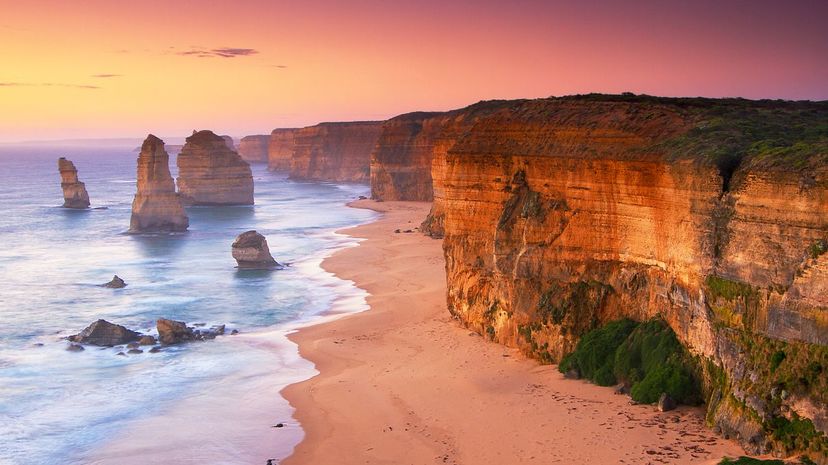
About This Quiz
As the Australian national anthem goes, the nation has boundless plains and abounds in nature's gifts. There's simply no limit to how many national treasures the nation offers, with people from around the world flocking to Australia to swim, hike and otherwise explore the country.Â
Geography lovers also have plenty to enjoy when it comes to Australia! As a breathtaking and diverse landmass, there are heaps to know when it comes to Australia's geography. From its trademark deserts and beaches to its lesser-known rainforests and mountain ranges, the stunning country is fascinating for geography lovers. Holding numerous world records and being home to many UNESCO World Heritage-listed sites, Australia is truly unbeatable when it comes to its gorgeous geography.
So how does your knowledge of Australian geography stack up? Can you tell your billabongs apart from your beaches? Do you know what makes each state and territory unique in terms of its geographical landmarks and features?Â
On top of this, Australia's geography also varies culturally, with different communities having their own landmarks. It's time to put your knowledge of Australian geography to the test with this quiz! From Albury to Zeehan, let's see how much you really know about the land that is girt by sea.Â
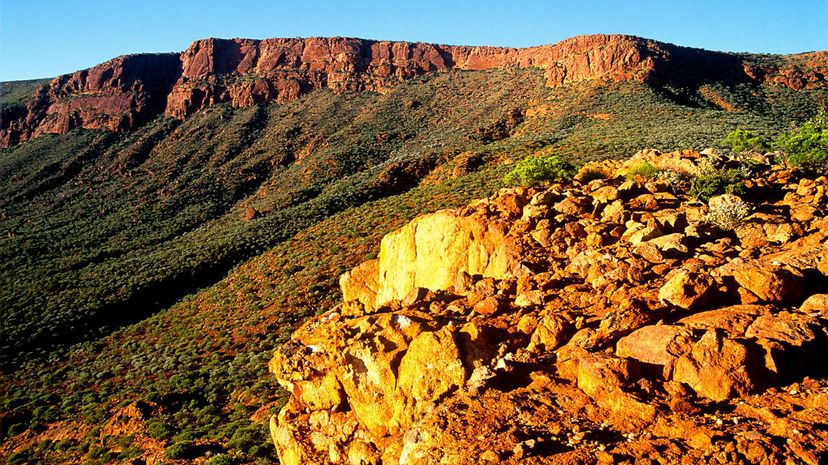
While Uluru (formerly known as Ayers Rock) is Australia's most famous rock, Mount Augustus is actually its biggest. Located in Western Australia, Mount Augustus is more than twice the size of Uluru!
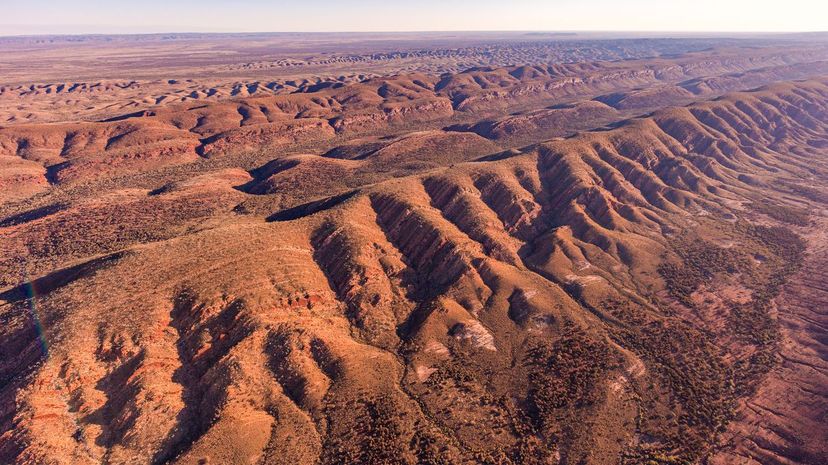
While Australia is known for its outback, desert actually only covers 18% of the country. Technically, however, a further 35% of the country receives such little rainfall that it is also considered 'desert'.
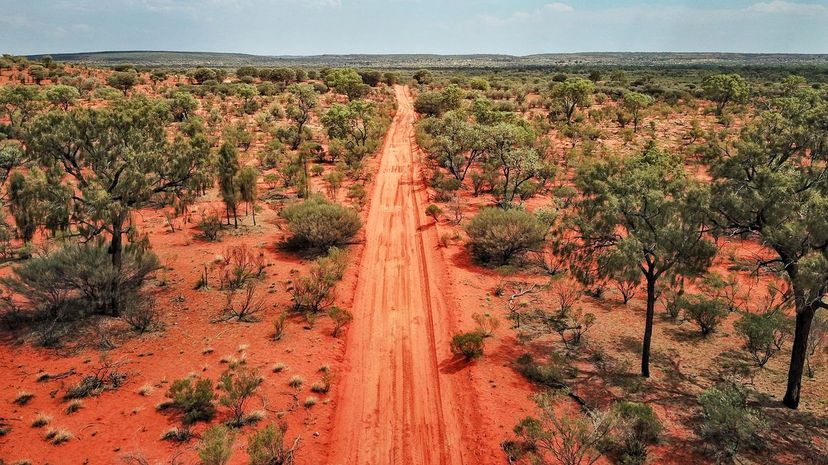
Australia spans three time zones: Eastern Standard Time (the default), Central Standard Time (followed by South Australia and the Northern Territory) and Western Standard Time (followed by Western Australia).
Advertisement
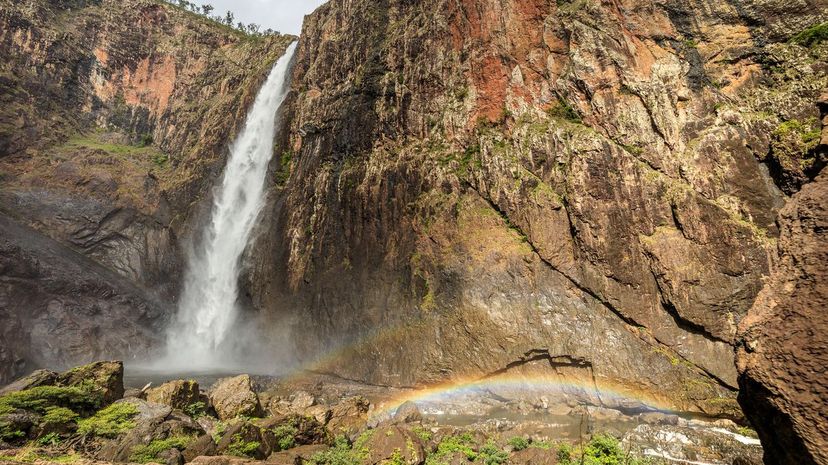
The stunning Wallaman Falls are in Queensland, featuring a plunge of almost 300 metres. Try going for a dip here, or visiting New South Wales, which also has an abundance of famous waterfalls.
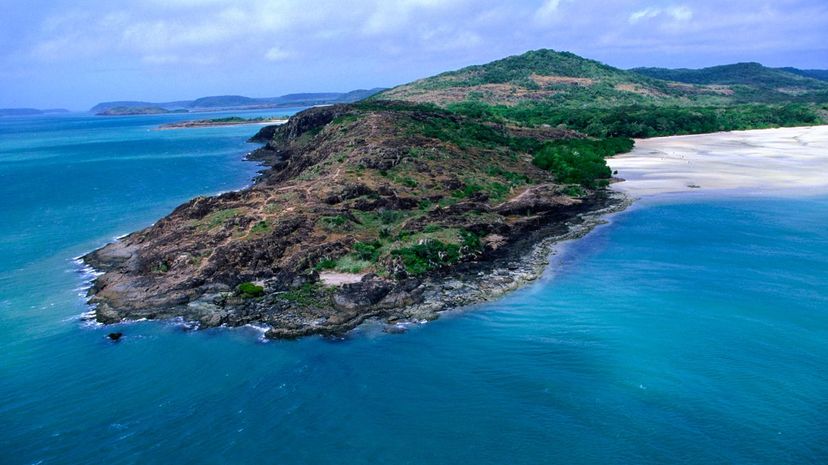
While Englishman Captain Cook is most know for building a settlement at Botany Bay, a Dutch explorer was actually the first to land in Australia at Queensland's Cape York Peninsula.
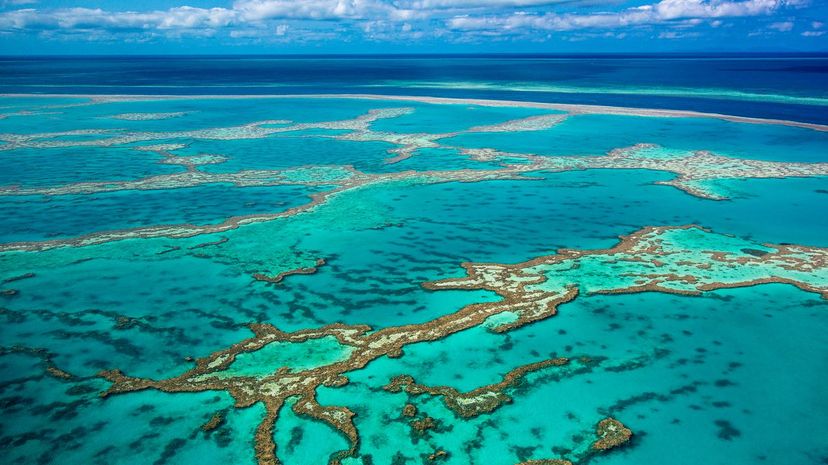
The Great Barrier Reef is the largest structure built by organisms other than humans. It is recognised as a World Heritage Site, and the current living coral is thought to be 6,000-8,000 years old.
Advertisement
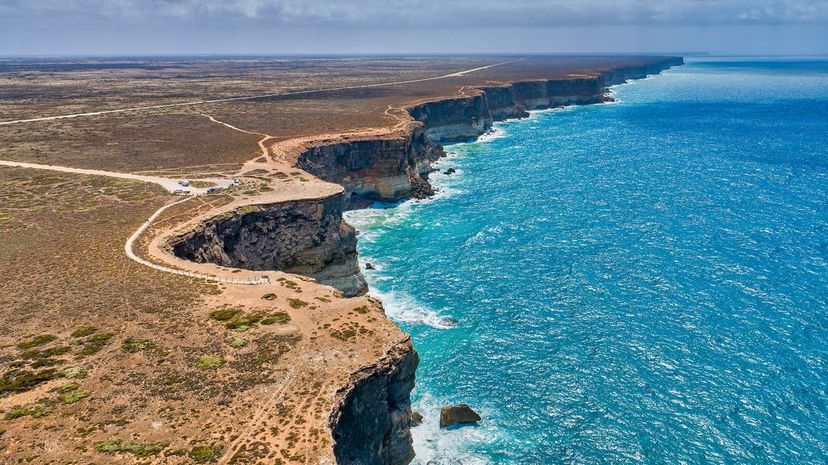
The Great Australian Bight is a large open bay (or bight) off Australia's southern coast. It's known for its stunning clifffaces and due to its connection to the Nullaboor Plains.
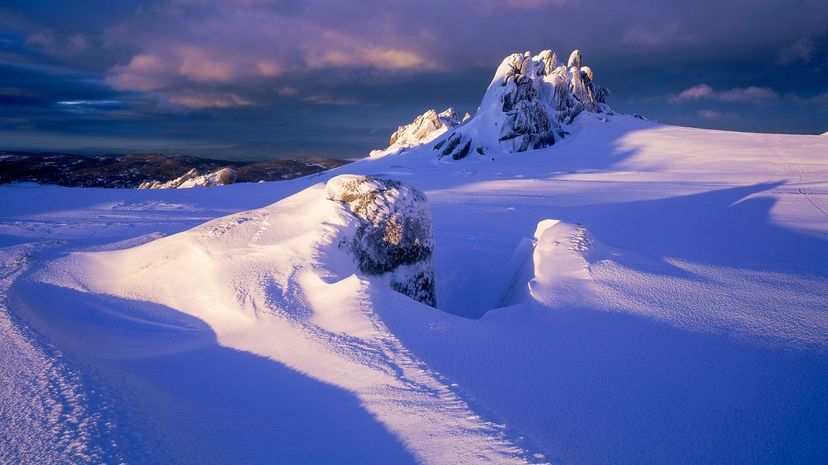
Mt Kosciuszko is Australia's tallest mountain, standing at 2,228 metres. It is located in the Snowy Mountains, near the popular tourist town Thredbo. From skiing to hiking, Mt Kosciuszko has something for everyone.
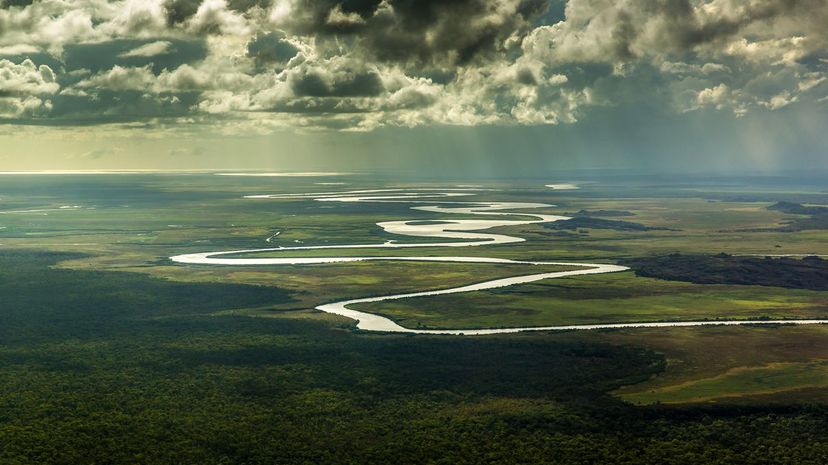
Arnhem Land is a region in the Northern Territory known for its gorges, rivers, waterfalls and rocky escarpments. As it is home to the Yolngu people, a permit is needed to visit the area.
Advertisement
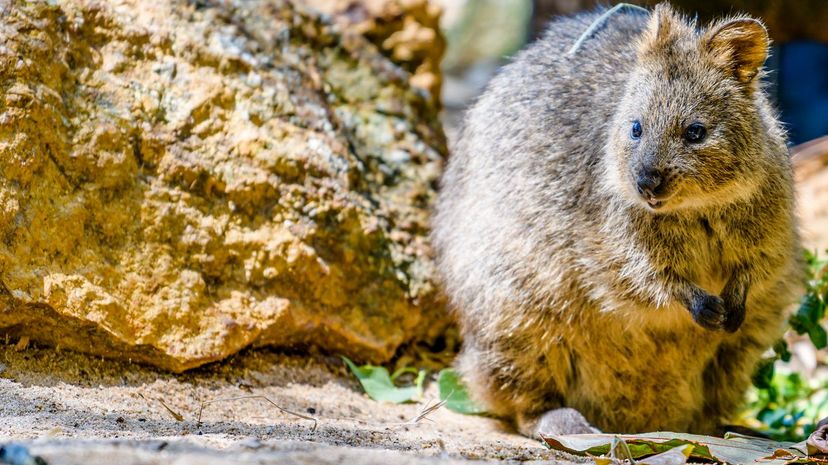
The adorable quokka lives on Rottnest Island off the coast of Western Australia. The cute critters are known for their friendliness towards humans, even posing for selfies with tourists!
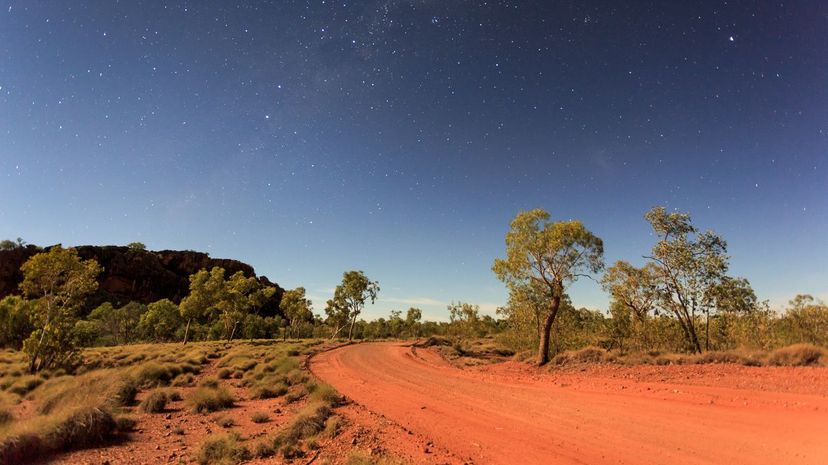
Australia was once referred to as terra nullius, which is Latin for "nobody's land." This completely discredited the local Indigenous people who have thrived in Australia for 40,000 years!
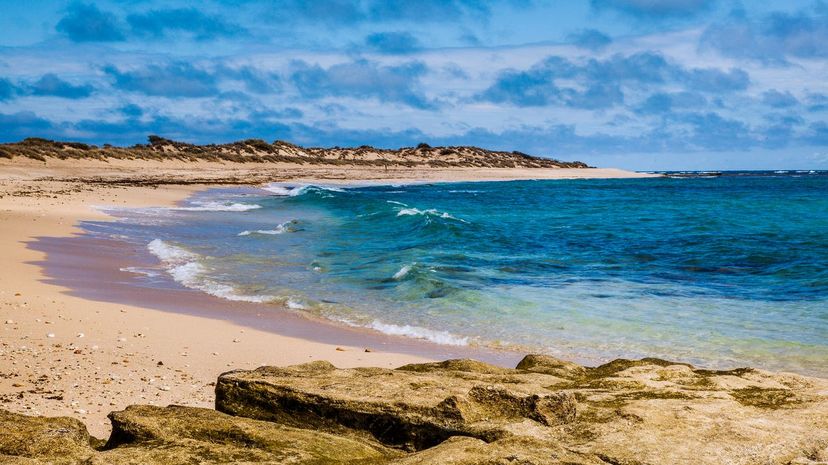
Steep Point is the westernmost point of Australia, located within the Gascoyne region of Western Australia. This is 670 kilometres from Perth, the state capital. Australia truly is massive!
Advertisement
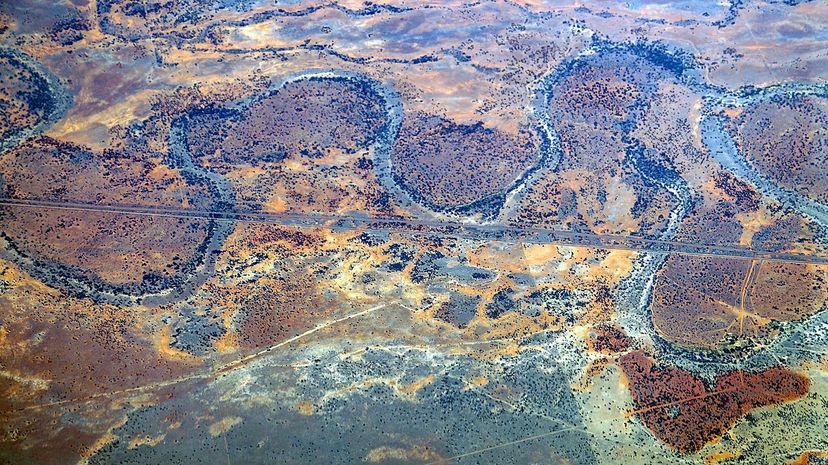
The Murray River is the longest continuous river in Australia, if its tributary the Darling River is included. The drainage basin covers 14% of mainland Australia at 2508 kilometres long!
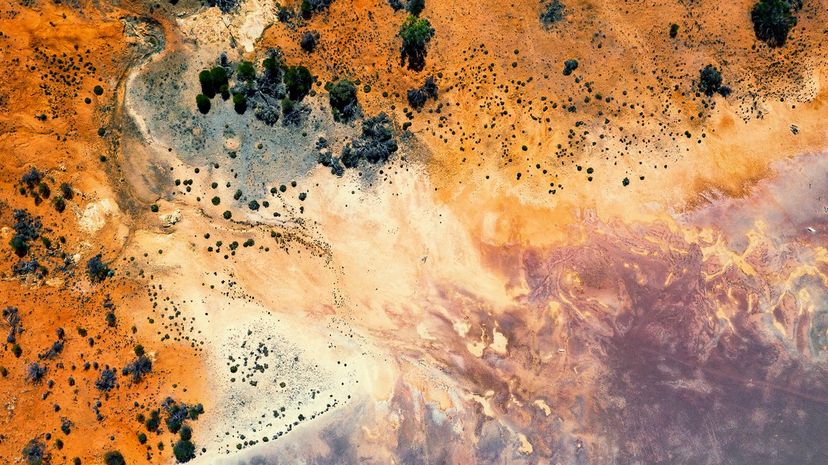
Australia is the sixth-largest country in the world after Russia, Canada, China, the USA and Brazil. Interestingly, Australia is both the world's largest island and its smallest continent!
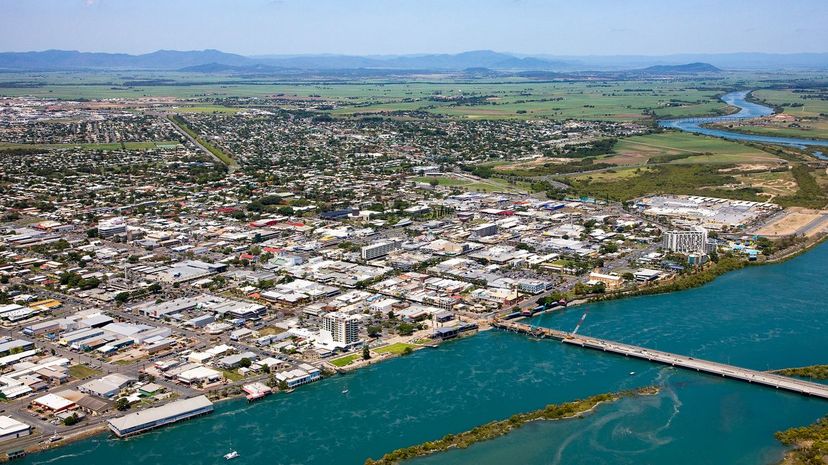
Mackay in Queensland is the hub of sugar production in Australia, also growing some of the country's best bananas and mangos. Also, did you know Queenslanders are affectionately called banana benders?
Advertisement
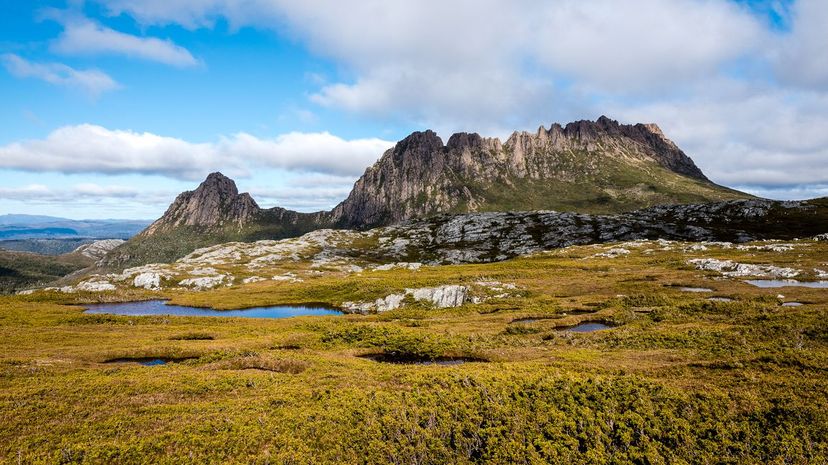
Cradle Mountain is the most popular hiking mountain in Tasmania, but it's actually only the sixth-highest mountain in Tasmania! The mountain is known for its gorgeous views and uniqueness.
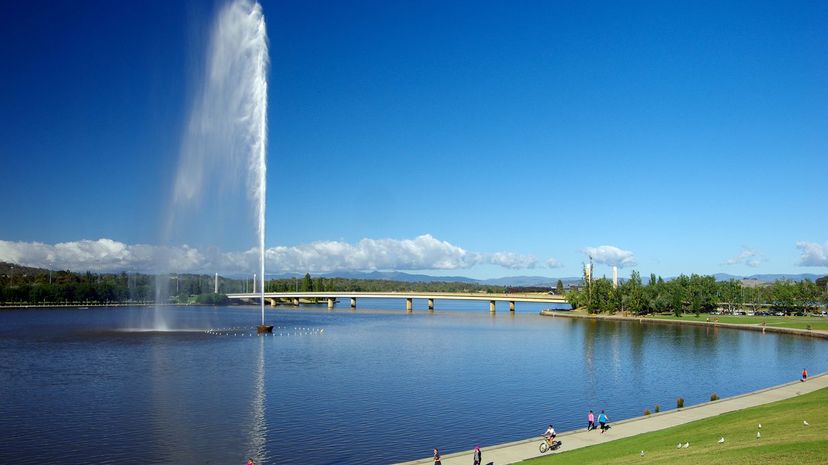
Australia is home to some stunning pink lakes due to the presence of salt and algae. Lake Burley Griffin, however, is not a pink lake. In fact, it is a manmade lake in Canberra, the nation's capital.
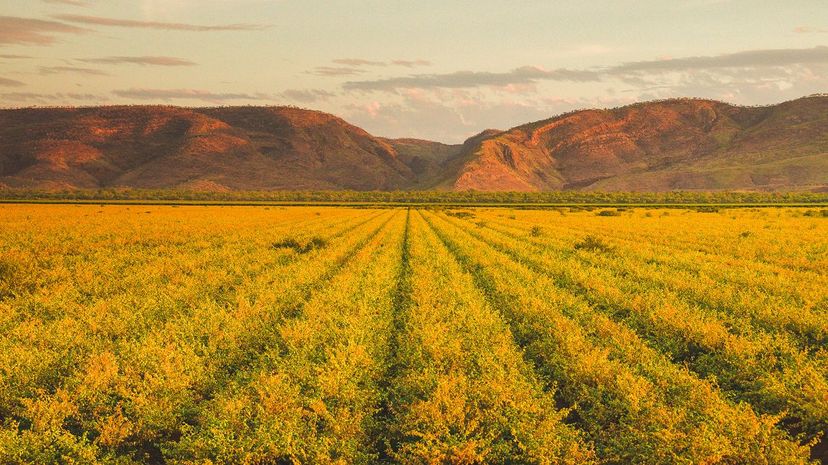
The Kimberley in Western Australia is a region known for its fantastic outdoor activities like camel riding, swimming and more. Bungee jumping, however, is not a common endeavour in the area.
Advertisement
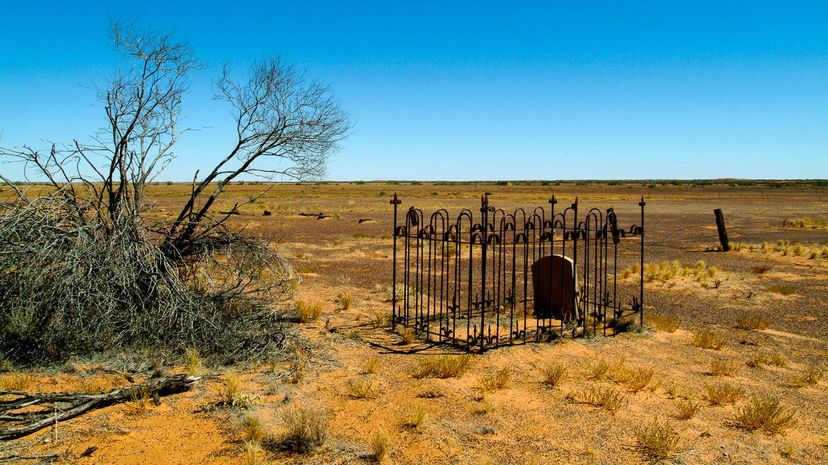
In the summer, temperatures often go well into the 40s. However, a record was set in the South Australian town of Oodnadatta in 1960. Let's hope it never gets to this scorching temp again!
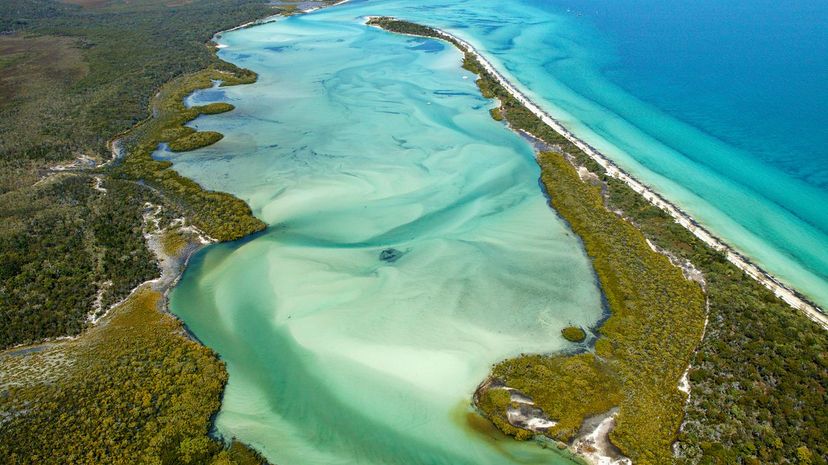
Fraser Island is the world's largest sand island and is a World Heritage Site. It stretches over 123 kilometres in length and 22 kilometres at its widest point, making it a popular tourist destination.
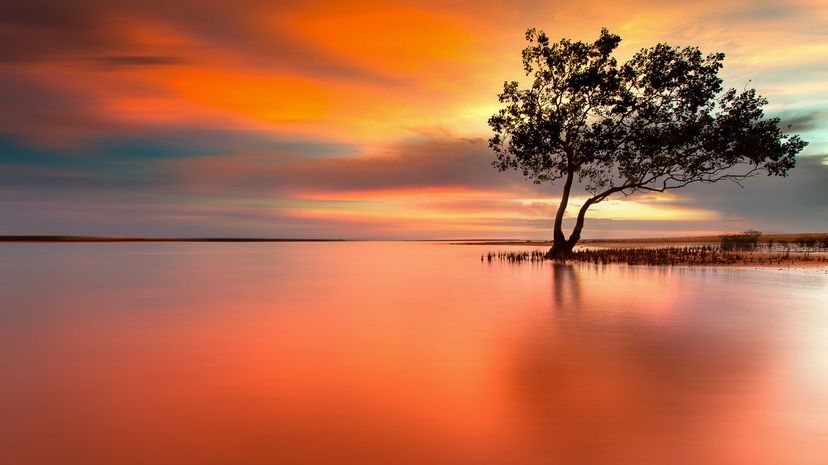
Cyclone Tracy hit Darwin over the Christmas period in 1974. It killed 71 people and destroyed more than 70% of the town and 80% of homes, making it a devastating event in Australian history.
Advertisement
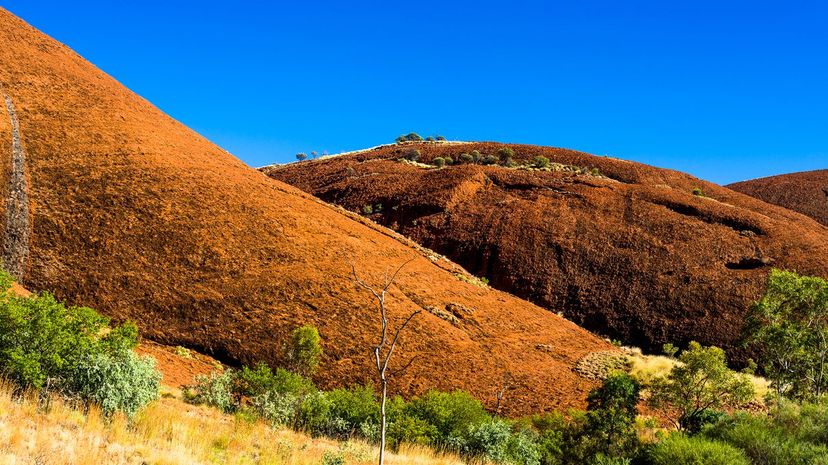
Kata Tjuta is the Indigenous name for the rock formation commonly known as the Olgas or Olga Mountain. They are known for glowing orange in the evenings, making it a popular tourist destination.
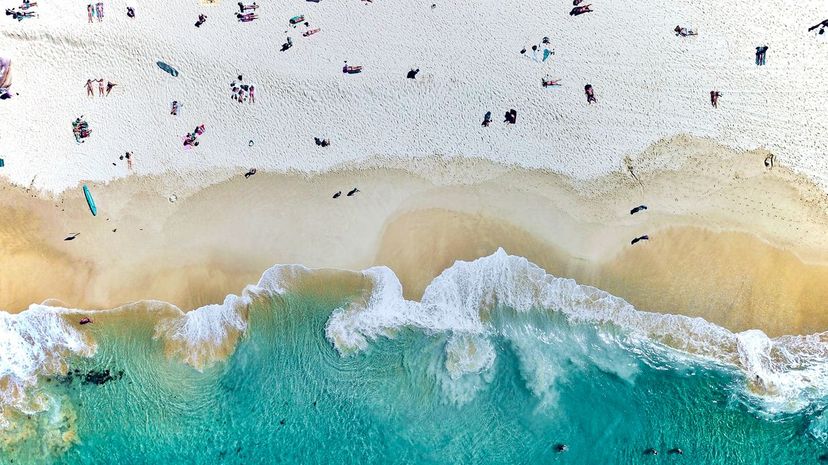
Australia has the most beaches in the world, with the total thought to be around 10,000. Given that the entire country is surrounded by coastline, this shouldn't come as a surprise!
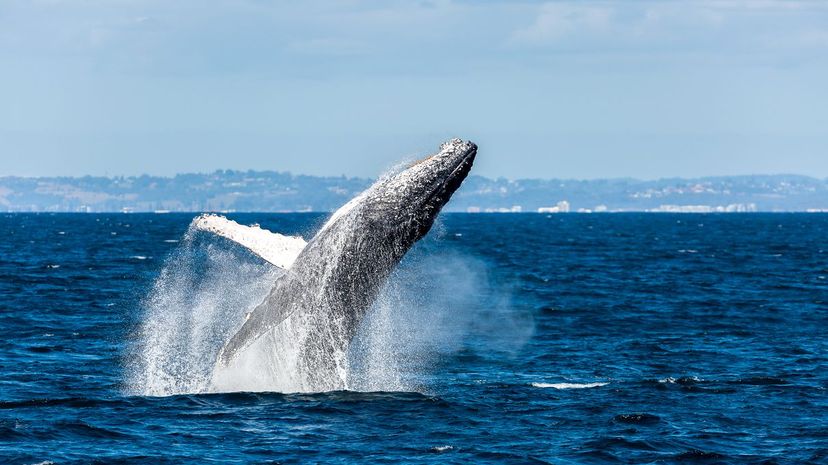
Australia has many fantastic whale watching spots, but Launceston isn't one of them. Instead, visit hot spots in Western and South Australia such as Exmouth, Victor Habour and the others mentioned.
Advertisement
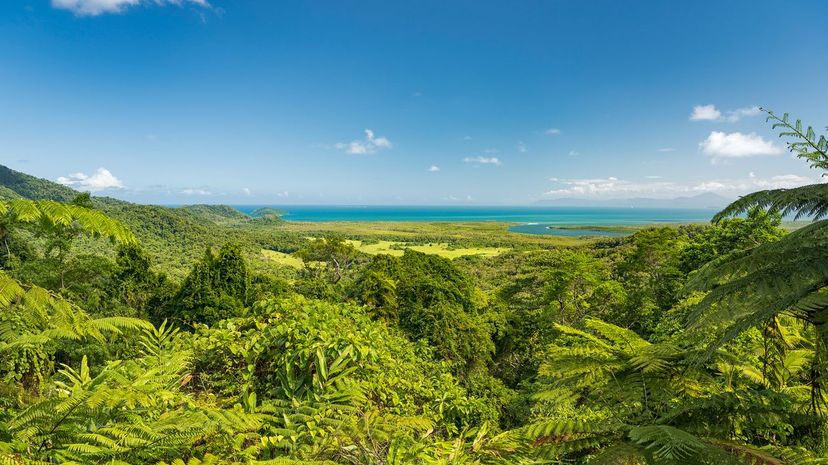
The Daintree Forest is in northeastern Queensland and is widely known to be the world's oldest rainforest. Much of the Daintree Rainforest is considered a UNESCO World Heritage Site.
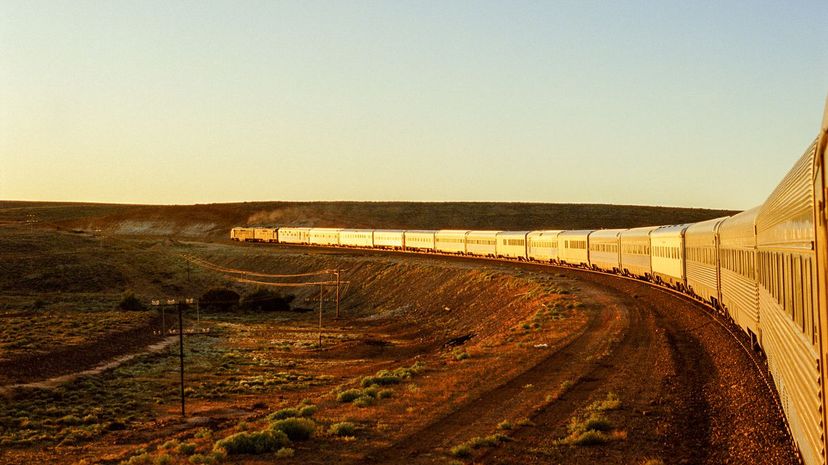
The Ghan takes you through the Red Centre of Australia across an almost 3,000-km journey over several days. There's even an entire TV show that livestreams its journey from a camera atop the train!
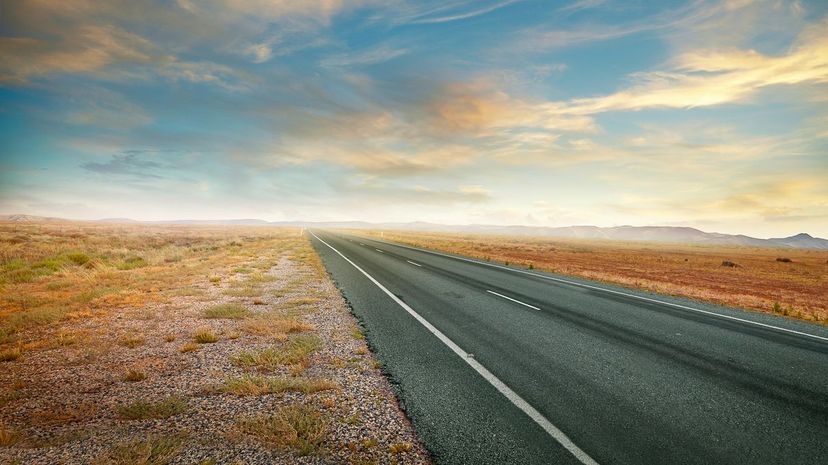
Australia's Highway 1 joins all the mainland state capitals and is thought to be approximately 14,500 km long. This makes it the longest national highway in the world! It takes 14 days to finish the drive.
Advertisement
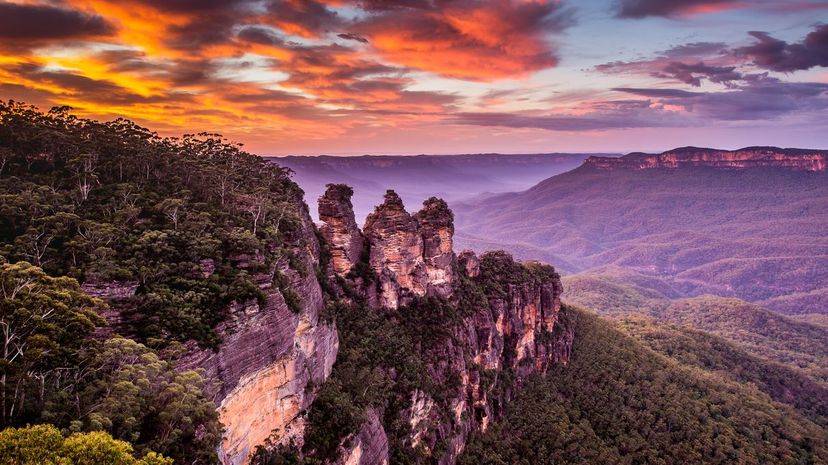
The Blue Mountains are covered in eucalyptus trees, with disperse tiny droplets of oil into the air. This combines with dust and water vapour to create a blueish haze over the horizon.
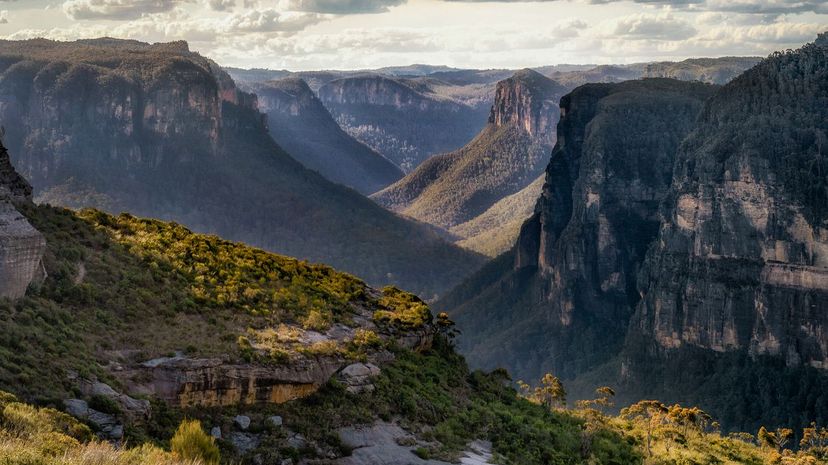
The Great Dividing Range is the world's third longest land based mountain range and is also referred to as the Eastern Highlands. It stretches all the way from Queensland to New South Wales before finishing in Victoria!
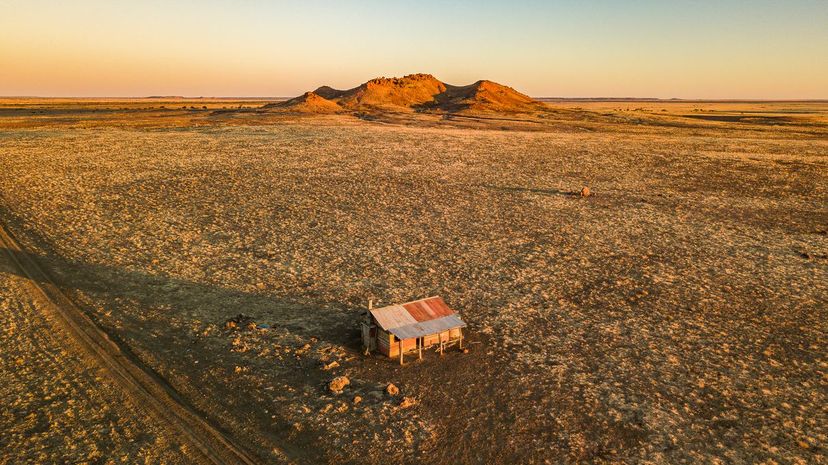
While Australia is one large island and lays claim to many other islands surrounding it, it does not have the most islands when compared to countries like Sweden, Finland and Indonesia.
Advertisement
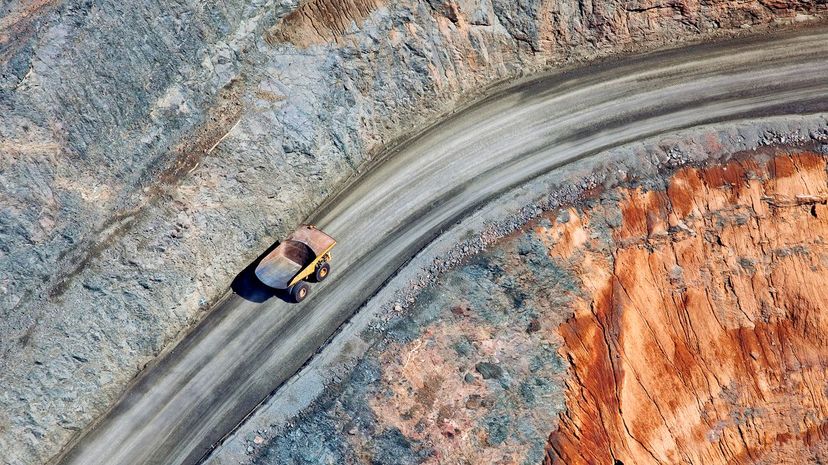
Coober Pedy in South Australia is known as the opal capital of the world, supplying most of the world's opals. The town lies between Adelaide and Alice Springs and is a popular tourist destination.
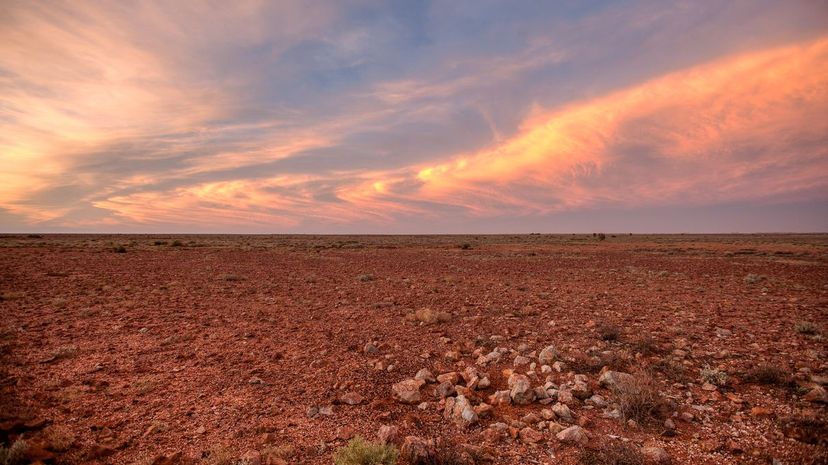
While not as well known as the Simpson or the Gibson, the Great Victoria Desert is actually Australia's largest with an area of 348,750 square kilometres. You wouldn't want to take a wrong turn there!
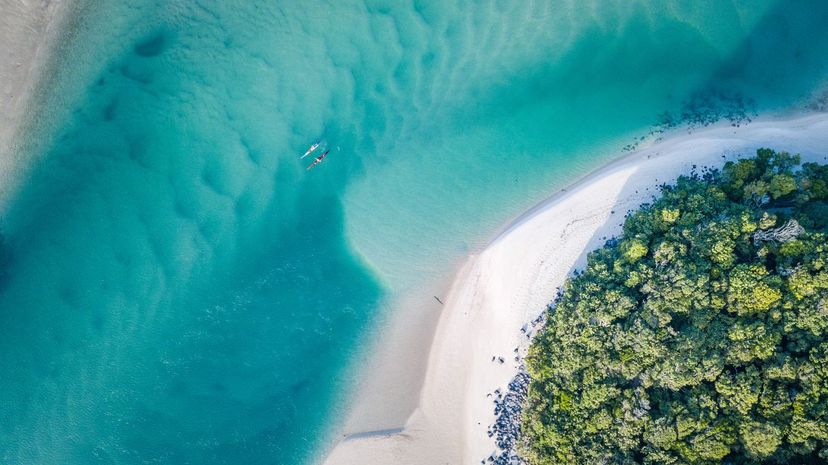
Australia is known for its love of big things, with various towns competing to come up with quirky landmarks. Unfortunately, the Big Donkey is not yet a real one, but all the others mentioned are very popular tourist destinations.
Advertisement
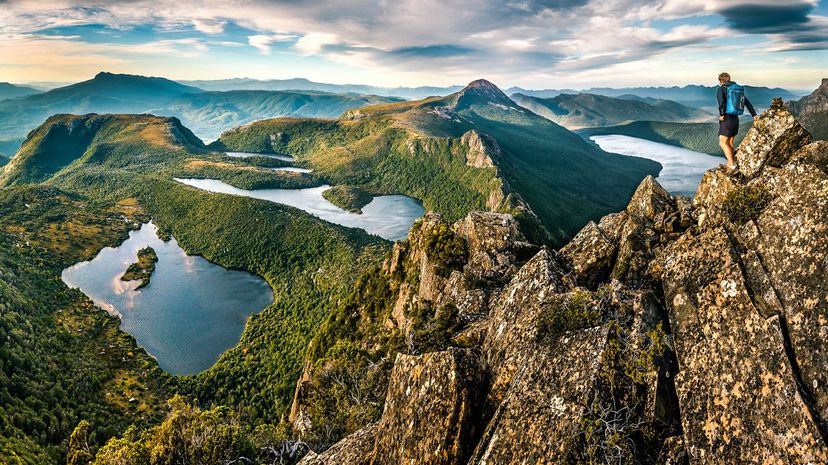
Tasmania was originally called Van Diemen's Land after the Governor of the Dutch East Indies, Anthony Van Diemen. Eventually, the name was changed as a nod to Abel Tasman, the Dutch navigator who first landed on the island.
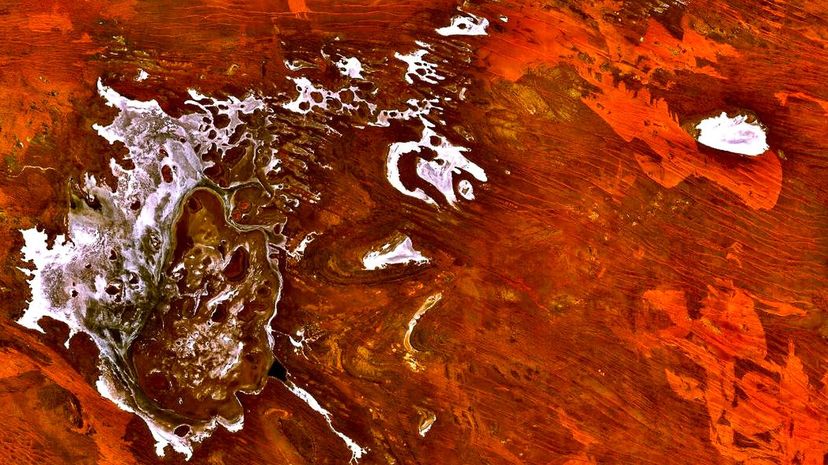
Lake Disappointment is a salt lake located in the Pilbara, in Western Australia. The lake got its amusing name because the explorer who first found it expected to come across a large fresh water lake. He instead saw that it was dried up!